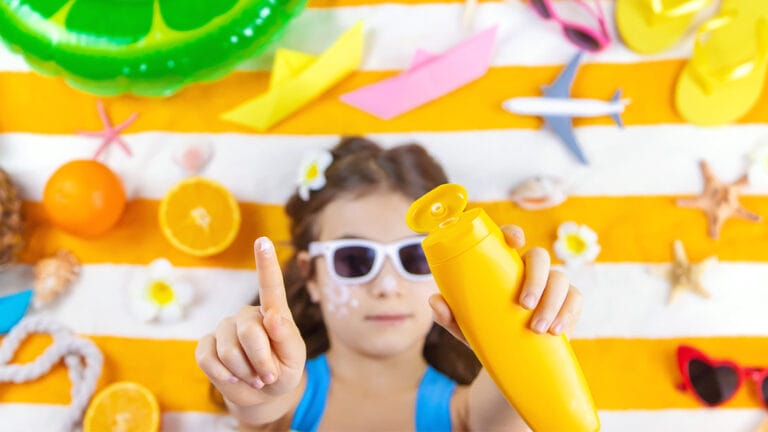As the Utah inversion clears and winter bids its chilly farewell, warm spring and summer months bring days filled with fun in the sun and outdoor family activities. However, amidst the blossoming flowers and cheerful picnics, there’s a sneaky intruder – seasonal allergies! According to the Centers for Disease Control, nearly 19% of children experience seasonal allergies, which rises to more than 25% by adulthood.
When your child starts sneezing, and their eyes start itching, the quest for relief becomes a heroic adventure as you debate whether it could be a cold or something more. It can be hard to know the best course of action for keeping your infants, toddlers, and teenagers happy and healthy and if allergies are at play.
How do I know if my child has seasonal allergies?
Airborne allergens entering the eyes, nose, and mouth cause seasonal allergies or hay fever (common names for allergic rhinitis). The most common allergens in early spring and summer, are pollen from flowers, trees, and grasses. Later in the year, mold spores become more common.
When a child is exposed to an allergen, the body’s immune system can misidentify it as a threat and mount a counterattack. A wave of antibodies floods through the body, attaching to special cells called mast cells, which release histamines when they encounter an allergen. Those histamines cause itching, watery eyes, or other symptoms typical of an allergic reaction.
Kids must first be exposed to an allergen before they can develop an allergy, so you may have a few allergy-free summers before they show up. If your child starts exhibiting one or more of the following symptoms and the discomfort lasts for weeks, they may be indicative of pediatric seasonal allergies.
- Stuffy or runny nose
- Sneezing
- Itchy eyes or nose
- Redness and/or discharge from the eyes
- Postnasal drip
- Sore throat or cough
- Dark circles under the eyes
What can I do to help treat or prevent childhood seasonal allergies?
Allergy symptoms can be frustrating enough on their own, but left untreated, they can lead to secondary problems. Congestion often triggers breathing through the mouth while sleeping, leading to poor sleep and sore throats. Allergies can also worsen asthma and increase the risk of ear and sinus infections.
There’s no known way to cure your child of seasonal allergies, but here are four steps to reduce their exposure and treat symptoms at home.
- Monitor air quality: Most major cities have regular air quality reports providing information about potential allergens, including pollen forecasts. Being strategic about when and where you go outside can minimize your child’s exposure to allergens.
- Keep windows closed: It can be tempting to crack those windows and feel the fresh spring breeze rushing through your living room, but that breeze carries allergens. Keep your doors and windows closed whenever possible, and replace the filters in your air conditioner, swamp cooler, or interior air filters.
- Keep clean: Have your child change clothes, wash their hands and face, or shower after they play outside to remove allergens clinging to their bodies. Plan bath times before bedtime to prevent allergens from being tracked into the bedroom.
- Allergy medications: Talk with your child’s pediatrician about over-the-counter allergy medications. Some allergy medications take a while to kick in, so it’s usually recommended to start taking them when symptoms show up and keep taking them until allergy season is over. Remember that some allergy medicines can make kids sleepy so ensure all medications are used appropriately.
Seasonal allergies can be a blemish on an otherwise fun and fancy-free time of year, but with a bit of planning, your child can run through the grass and tromp through the mud, enjoying adventures with all the other kids!






